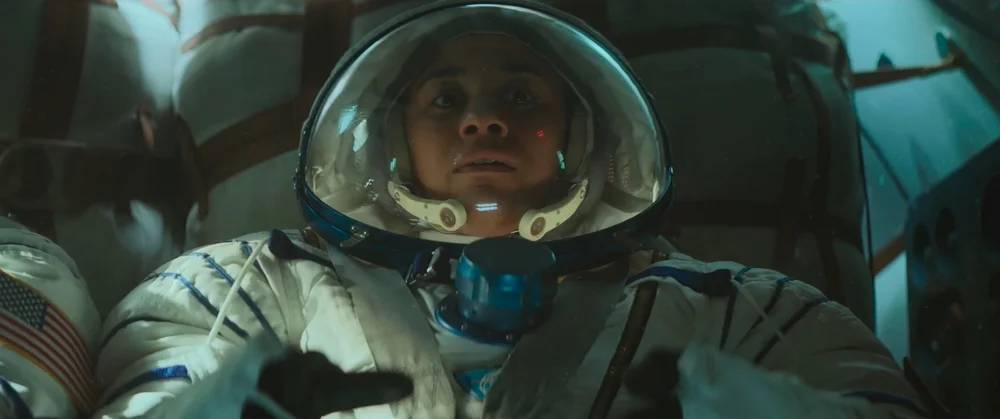
Image: Bleecker Street
I.S.S.-- 3 STARS
LESSON #1: THE SO-CALLED NEUTRALITY OF THE INTERNATIONAL SPACE STATION– Before this review examines the new film I.S.S., take a look for a moment at the so-called politics of the 26-year-old International Space Station. Long celebrated as a scientific haven of civil cooperation above geopolitical differences, this very writer was surprised to learn there is no complete percentage of ownership of the space station. Rather, the assembled modules of the I.S.S.– right down to the airlocks, docks, and living spaces– each have demarcated possessors. Crossover uses of those components can sometimes involve compromises far more complicated than employing an office label maker or the calling of dibs.
Even so, the details and history of cooperation read pretty dry, leaving plenty of room for a movie thriller to come along and present a conundrum or two that challenges the outlined order of affairs. With that in mind, it takes heady intentions to do better than a tiff here or a malfunction there. Sure enough, Blackfish and Megan Leavey director Gabriela Cowperthwaite and debut screenwriter Nick Shafir present a doozy of a dilemma– namely global nuclear war— and they drop it right into the lofty laps of nerdy universal harmony on the International Space Station. Color us all intrigued.
I.S.S. begins with the docking arrival of two American crew members beginning their multi-month tenure. Christian Campbell (10 Cloverfield Lane’s John Gallagher Jr.) has been here before, but Dr. Kira Foster (West Side Story Academy Award winner Ariana DeBose) is brand new to the International Space Station experience. Gathering her zero gravity bearings, Kira is graciously introduced to the community practices and traditions commanded in partnership by senior officers Nicholai Pulov (Costa Ronin of The Americans) and Gordon Barrett (Air ensemble member Chris Messina). The six-person specialist team is rounded out by Nicholai’s brother Alexey (Pilou Asbæk of Samaritan and Overlord) and Weronika Vetrov (rising TV actress Masha Mashkova).
Defying the language and cultural barriers present, one of this tight-knit crew’s oft-spoken and unwritten rules is “no politics.” Up there, they share resources, favor science, work together for common causes, and fly no flags. Bonding with her fellow female Weronika, Kira fits in quickly. The amiability of it all proceeds swimmingly only for the I.S.S. crew members to look out the observation dome to the Earth below and witness severe ballistic flashes occurring all over North America. They don’t say what it is, but they know. High-speed neutrons have induced weaponized fission in dozens of warhead detonations. The sky of the beautiful blue marble turns to fire and the shit has hit the fan. All the while, the six of them float safely above it all, powerless to help and cut off from knowing the fates of their families, friends, and nations.
LESSON #2: FOLLOWING ORDERS– Before long, Gordon receives a secure message of ominous orders from Mission Control. It reads:
An act of war has occurred between U.S. and Russian military. Further countries' involvement is being investigated. The I.S.S. has been deemed a priority foothold. All U.S. citizens aboard are to abort all orders and experiments. Your new objective is to take control of the I.S.S. by any means necessary.
If the three Americans weren’t stunned before, they sure are now. They hold the solid assumption that if they got those types of orders, there’s an extremely good chance the Russians did as well and are weighing their options at the same time.
LESSON #3: TURNING CITIZENS INTO SOLDIERS– What was gregarious collegiality turns to tight-lipped suspicion among the six astronauts. With this setup and ordered path, the moral challenges in I.S.S. hit like a silent ton of bricks as citizens are forced to become proverbial soldiers. Who will lean on duty and act on orders? Who will refuse them and seek compromise, if it can even be had? Who is willing to tell the truth or be trustworthy above the fray? When all of that is ruled out, who will strike first?
All of this escalating crisis in I.S.S. is occurring inside a highly unique and confined setting surrounded by the deadly vacuum of space. To make matters worse, without current ground support that was likely knocked out in the missile strikes, the coveted I.S.S. is gradually dropping in altitude and will collide with the upper atmosphere in a handful of hours. That extra wrinkle quickens the clock of confrontational suspense.
Shown in Alfonso Cuaron’s 2013 Oscar winner blockbuster Gravity but not fully tapped as it is here in this Bleecker Street indie film, the International Space Station is a fascinating and clever backdrop for a pressure cooker. Property master Cat Dawson (Scream: The TV Series) and set decorator Kevin Pierce (A Deadly Price For Her Pretty Face) outdid themselves within the vision of production designer Geoff Wallace to organize a myriad of tangible objects and spaces in I.S.S. that could be advantageous resources or impromptu weapons of offense or defense. Their very effective work gives the voyeuristic feeling that anything mundane can swerve at any moment. You will catch yourself sizing up each room– as the characters do– and the threats within them.
From a presentation standpoint, the balanced use of in-station cam views and close-quarters cinematography by Nick Remy Matthews (Hotel Mumbai) keep the perspectives guarded yet steady. Relying on stunt coordinator G. Peter King’s (Wildcat) harnessed wire work on-set for the actors, most of the VFX for I.S.S. were reserved for depicting the fiery maelstrom out the window, which kept the budget shrewdly under $15 million. The same steady compliments can be said for an ominous score from Anne Nikitin (Dangerous Liaisons) that paces the ethical chess match with attuned anxiety.
Typically, this would be where a Cold War-era movie in the 1980s or 1990s would escalate bombastic and wacky stakes. Logic and intelligence would be cast aside for brawn and a bigger budget would bring out a second troupe of scenery-chewing actors to play influential people on the war-torn planet. The Eastern European foreigners would turn heel faster than soap opera characters and someone, most likely the usually loud and red-assed Chris Messina, would be action-ified to become NASA’s John McClane to save the day.
Thankfully, the script and Gabriela Cowperthwaite offer a more-evolved approach, keeping I.S.S.-- at first– as reasonably cool, calm, and collected as possible until tension requires more peril. Forging this more mature path, Ariana DeBose and Masha Mashkova become the invaluable and cautiously wise characters willing to contemplate risks before acting on them. They are welcome and instantly engaging presences for discerning science fiction audiences. Still, those more casual crowd arriving to I.S.S. thirsty for spectacle will wish– and not be entirely wrong in doing so– the movie set off more incendiary moments higher in the sky than the ones far away on the ground.
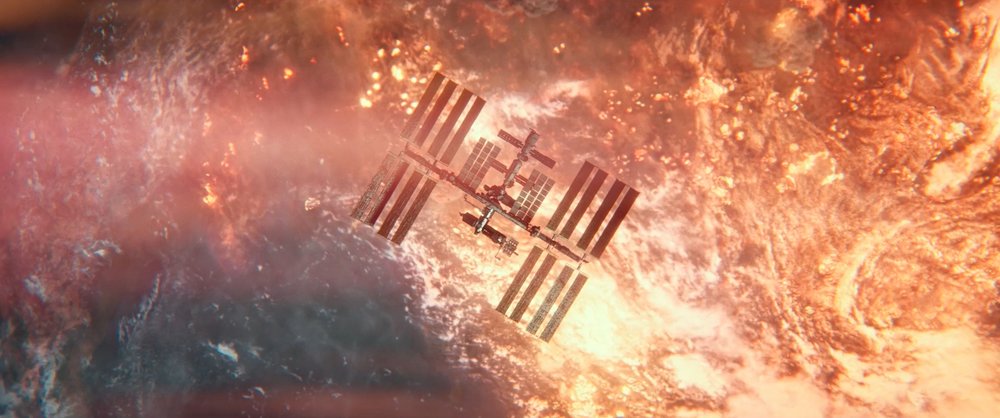
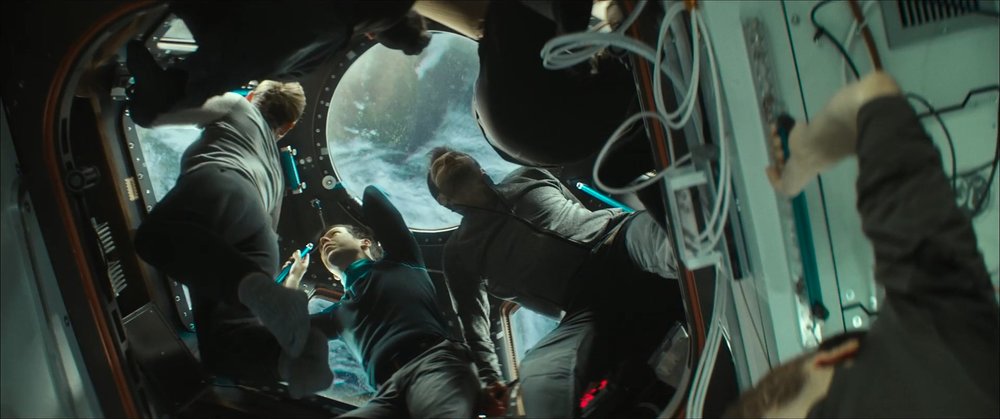
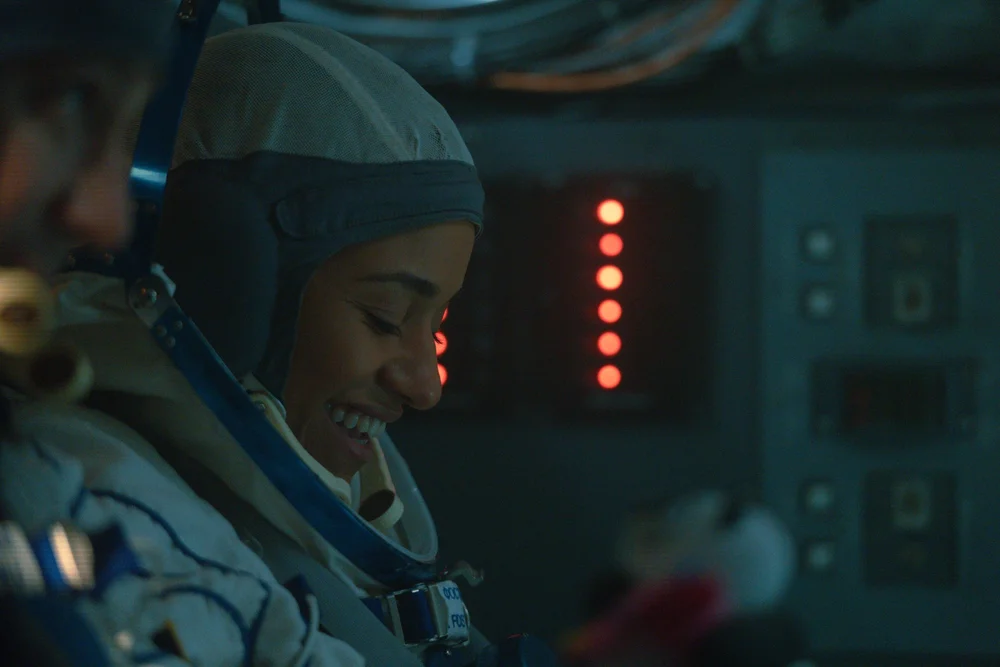
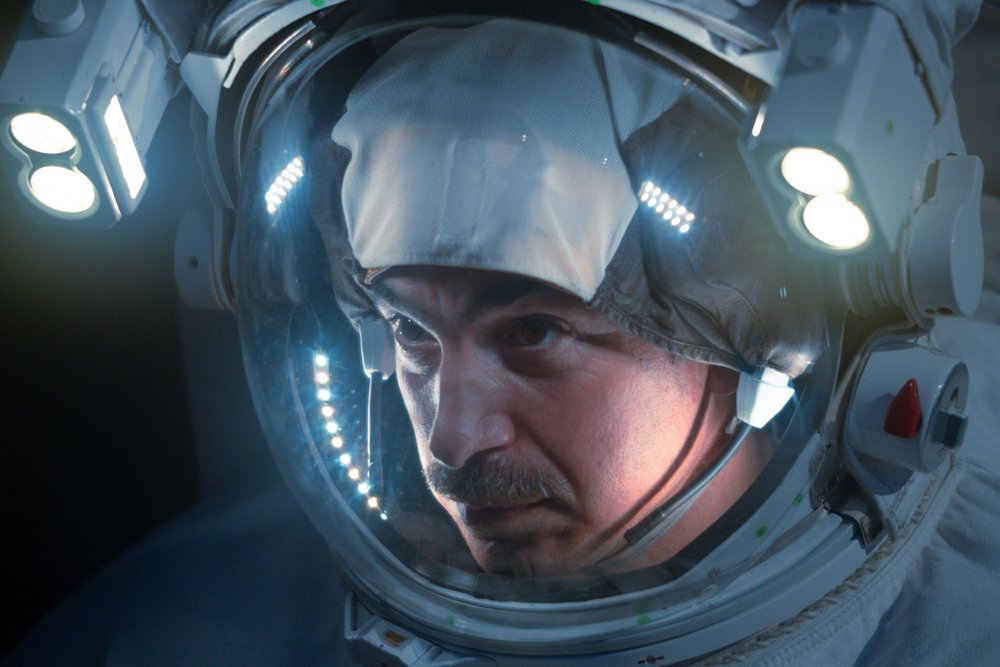
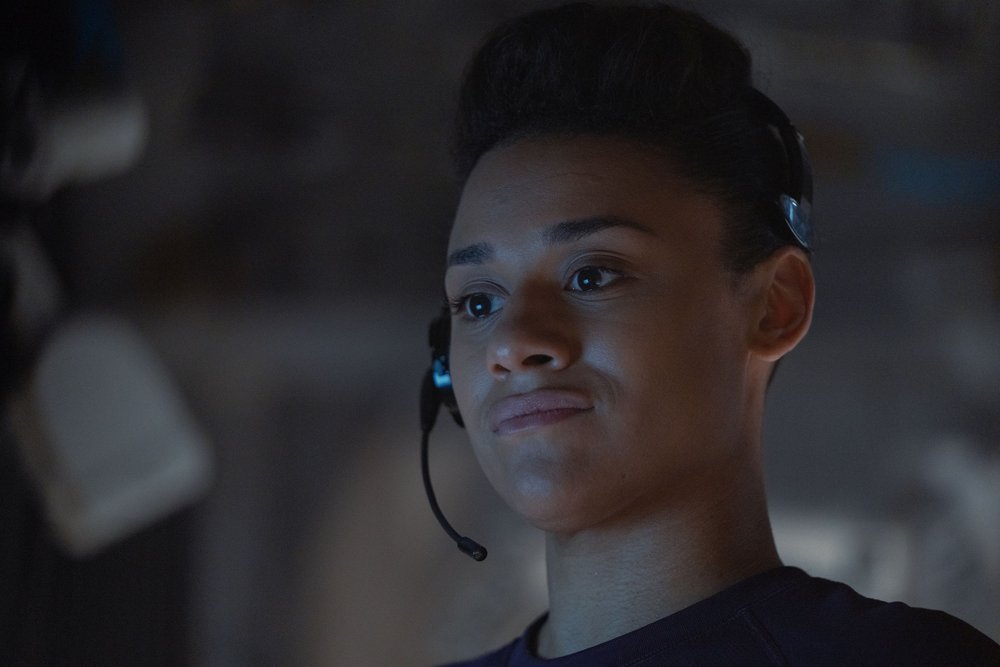

LOGO DESIGNED BY MEENTS ILLUSTRATED (#1167)
from Review Blog https://ift.tt/6nQgy2r







No comments:
Post a Comment